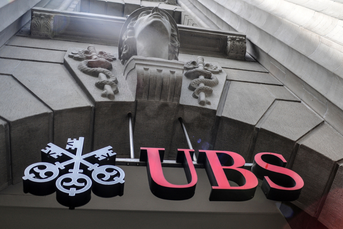How a weekend client raid blew up and a brokerage battle went public

Arbitration case alleges that Oppenheimer & Co. stepped beyond the bounds of propriety in mounting a client raid on Peter Schiff's Euro Pacific over a three-day weekend this summer.
The weekend client raid is an open secret. A financial adviser quits late on a Friday and spends the next couple of days helping his new employer solicit his old customers. There’s even a broker pact that suggests it is all a refined gentleman’s game.
Until things fall apart.
A new arbitration case alleges that Oppenheimer & Co. stepped well beyond the bounds of propriety in mounting a client raid over a three-day weekend earlier this summer. Such incursions are common, according to people in the industry. What’s unusual is for details of these raids to become public, in part thanks to an industry pact that governs broker job-hopping in an effort to tamp down litigation. The Oppenheimer matter — told through arbitration and court filings, letters and e-mails — provides a vivid study of some of the new strains to the old ground rules of client raiding.
On the Friday afternoon before Memorial Day, an investment adviser with a small firm called Euro Pacific Capital composed a short note to his chief executive: He was resigning, effective immediately.
The adviser, Steven Savoy, pressed “send” from inside an Oppenheimer office in Saddle Brook, N.J., according to Euro Pacific, launching a plan weeks in the making. Euro Pacific claims in its arbitration complaint that Mr. Savoy had left with confidential client lists that he and his new boss used to contact scores of people over the holiday weekend. Letters announcing Mr. Savoy’s move, with tabbed and highlighted account-transfer forms, allegedly sat ready for FedEx delivery.
Euro Pacific complained. Oppenheimer dismissed Mr. Savoy before he could collect what amounted to a signing bonus of more than a quarter-million dollars. Instead of holding down a new job at a bigger firm, he’s out of the business.
(Related read: MetLife hits LPL with major raiding lawsuit)
Mr. Savoy, reached by telephone, declined to comment.
Euro Pacific says the solicitations cost it more than $10 million in funds under management. Its complaint, filed with the Financial Industry Regulatory Authority Inc., asks for some $40 million in restitution from Oppenheimer. Euro Pacific also asked a federal court in Connecticut to keep Oppenheimer and Mr. Savoy from soliciting its customers until the matter is arbitrated. Euro Pacific’s complaints to the court and Finra accuse Oppenheimer of slander, conspiracy, unjust enrichment and theft of trade secrets.
Euro Pacific’s claims are without merit, Oppenheimer said in a statement, disputing that hiring one broker for one month could constitute a raiding-related claim. In a countersuit filed this month with Finra, the financial industry’s self-regulatory body, Oppenheimer said Mr. Savoy told them he had no contractual obligations restricting his move to the new firm.
SWITCHING SIDES
Mr. Savoy’s defection emerges in rich detail in part because the source of many of Euro Pacific’s allegations is Mr. Savoy himself. Facing a suit from his old employer and dumped by his new one, Mr. Savoy began cooperating with Euro Pacific.
A person close to Mr. Savoy said he did what his employer asked him to do, and ended up as a pawn in a bigger fight between warring firms.
Oppenheimer, like many big firms, has been on both sides of raiding battles. About a dozen such disagreements end in arbitration awards each year, said Alison Jimenez, president of Dynamic Securities Analytics Inc. and senior strategist for RegTelligence. Many more are settled privately between firms.
That’s thanks in part to the Protocol for Broker Recruiting, introduced by three big investment firms about a decade ago to put guardrails on client poaching. More than 1,300 firms have signed on to the protocol, which limits the client information brokers can take with them when they move firms — name, address, phone number, e-mail address and an account title.
Some firms are rethinking whether the protocol offers enough protection. That’s especially true of banks that provide their in-house advisers with client leads from their own broad databases, and see those clients as belonging to the house, not the broker. Merrill Lynch, while championing the protocol, says it has augmented it in recent years with another policy: It provides in-house leads only to brokers who agree not to take those clients with them if they leave.
“Some in the industry are now trying to chip away at the protocol,” says Jonathan Pollard, an attorney in Ft. Lauderdale, Fla., specializing in employment competition issues.
(Broker data: The latest broker-dealer rankings)
SMALL SHOP
That makes an interesting test case of Westport, Conn.-based Euro Pacific, a shop of about 30 brokers that never signed the protocol. Oppenheimer, with more than 1,300 financial advisers, is a signatory.
Mr. Savoy, 43, arrived at Euro Pacific in 2008 with no clients, according to the Connecticut complaint.
Euro Pacific’s chief executive Peter Schiff, an investment-book author with frequent media appearances, said most of his firm’s clients are drawn to his investment philosophy.
“Clients come to Euro Pacific to work with me,” Mr. Schiff said by telephone. “They want some of their money with Peter Schiff. They don’t want to invest with Steve Savoy.”
Mr. Savoy was overseeing $68 million in assets around April 2015 when he started speaking with Daniel O’Dell, the manager of Oppenheimer’s Saddle Brook office, according to the Finra and court complaints. Mr. Savoy was under financial pressure after Euro Pacific changed its pay structure, the broker wrote to Mr. O’Dell in an e-mail included in Oppenheimer’s Finra filing.
In an early meeting, Mr. O’Dell asked Mr. Savoy to provide a list of Euro Pacific clients on a flash drive with account statements for each, according to Euro Pacific’s Finra complaint. Mr. Savoy expressed concern that doing so would conflict with confidentiality and nondisclosure agreements he’d signed, it added.
Mr. O’Dell told Mr. Savoy that Oppenheimer had a process for using confidential client data from a broker’s previous employer and used such information “all the time,” Euro Pacific said.
‘FLAP HIS WINGS’
Mr. O’Dell predicted that when Mr. Schiff learned of Mr. Savoy’s move, he would “flap his wings, flail his arms and make noise.” But Oppenheimer could likely settle the matter with a $15,000 or $20,00O payment to Euro Pacific, Mr. O’Dell told Mr. Savoy, according to Euro Pacific’s Finra complaint.
Mr. O’Dell didn’t respond to messages requesting comment, and Oppenheimer declined to make him available. The firm, in its Finra filing, said it asked Mr. Savoy for any employment agreements to support his claim that he was under no restrictions. Mr. Savoy, who had been a managing director at Euro Pacific, didn’t provide any, it said.
On May 6, while still at Euro Pacific, Mr. Savoy downloaded contact and account information on 421 clients onto a flash drive, according to the Finra and court filings. The next day Oppenheimer sent him an offer letter with a $280,000 sign-on bonus, which Mr. Savoy signed and returned with the drive, according to the Finra complaint. Mr. O’Dell, it added, told Mr. Savoy he should resign on the Friday before Memorial Day “so we can get a head start.”
That Thursday, Mr. Savoy left his Euro Pacific office without indicating he was quitting, the federal and Finra complaints cited colleagues as saying. The next day at 2 p.m., he sent his one-line e-mail to Mr. Schiff. “Please see attached document,” it read. It was his resignation letter.
By then, Mr. Savoy’s new Saddle Brook office was allegedly filled with account-transfer packages. Each included a letter signed by Mr. O’Dell, which was prepared while Mr. Savoy was still a Euro Pacific employee, the firm told Finra. Over the next three days, it said, Mr. Savoy solicited his old clients “on a mass scale.”
TABBED AND HIGHLIGHTED
It wasn’t until the Tuesday morning that Euro Pacific learned Mr. Savoy was gone, according to e-mails filed with Finra. By then, Euro Pacific said in a letter to Oppenheimer, “possibly over a hundred” customers had already received calls, e-mails or FedEx packages with the signature-ready transfer forms.
Mr. Savoy and Oppenheimer misappropriated trade secrets, conspired to breach Mr. Savoy’s confidentiality pacts and slandered Euro Pacific, the firm alleged in its Connecticut request for a restraining order, to which Oppenheimer consented.
Oppenheimer, in its Finra response, said it never possessed the Euro Pacific data.
Oppenheimer terminated Mr. Savoy early June 22, without his lump payout. The next month, Euro Pacific dropped Mr. Savoy as a target of its suit.
Now, Mr. Savoy is selecting an attorney, said the person close to him, as he battles Oppenheimer’s allegation that he lied about the terms of his Euro Pacific employment and duped Oppenheimer into hiring him. Oppenheimer told Finra it wants Mr. Savoy to foot the bill for any financial damages it may suffer.
The case is scheduled to go before Finra arbitrators in late November.
Learn more about reprints and licensing for this article.








